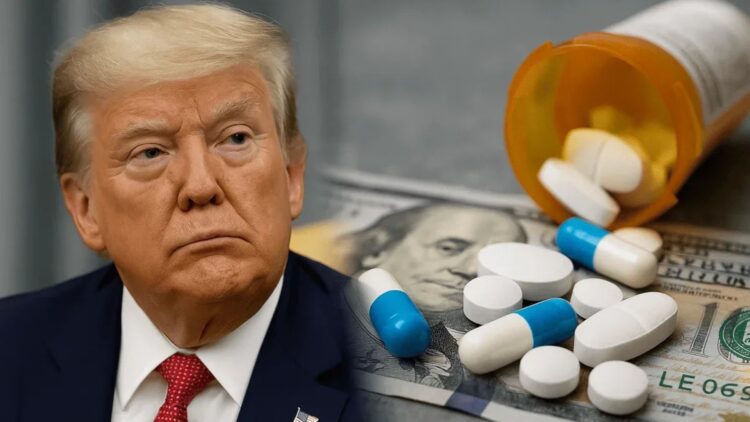There is not a day that Donald Trump makes a statement and the rest of the world trembles. Not out of fear, but because his ability to surprise is unmatched. In one of his latest interviews, he announced his intention to impose a pharmaceutical tariff of up to 250%, which would also affect the chips and semiconductors imported into the country, with the aim of boosting domestic pharmaceutical production in the United States.
These tariff measures arise from the Section 232 investigation of the Trade Expansion Act of 1962, which authorizes the government to investigate whether imports to the country pose a national security threat. Translated to the present, Trump believes that drugs coming from pharmaceutical exporters such as Australia, the European Union, or Switzerland pose a threat to the development of domestic manufacturing.
Section 232 of the Trade Expansion Act of 1962
The Commercial Expansion Act of 1962 in the United States is the one that safeguards trade liberation and the economic growth of the country. It grants the president the ability to negotiate tariff reductions with other countries in order to maintain an economic and trade balance. If it is considered that imports pose a threat to national security, the president need only refer to Section 232, which allows him to impose tariffs on those imports that are generating the threat.
Trump’s tariff policy
Since taking office, Trump has upended everything that had seemed solid in the United States until then. One of his most controversial measures has been the tariff policy on imports to the country. Products such as steel, aluminum, vehicles, energy products, and agricultural products are some of those affected. The percentage varies for each country and can rise or fall at Trump’s whim. In recent weeks, he has wielded this power to ‘threaten’ countries that do not align with his opinions or statements. Countries like the United Kingdom, Japan, or South Korea have already closed deals with the United States, while others like China are still in negotiations.
250% tariffs on imported pharmaceutical products
Donald Trump’s statements leave no one indifferent, and not precisely because of their creativity. In one of his latest interviews, the Republican president announced his intention to implement a tariff on imported pharmaceutical products to the country, as well as on semiconductors, in the coming weeks. He explained that it would be a gradual tariff (what a detail), starting with a reduced percentage but increasing to 150% in just one year. It is expected to reach 250% in 18 months. Trump stated, “We want pharmaceutical products to be manufactured in our country. China, Ireland, and other countries are enriching themselves with our imports. That has to change”.
How will it affect Americans?
Currently, the pharmaceutical production industry is spread across Ireland, India, China, and Germany. Trump’s intention was clear from his presidential campaign, and in April 2025, he already mentioned his intention to impose a tariff. He later announced that it would be 200% compared to the 250% he is now announcing. His bet continues, without considering that this is a decision that directly affects the health of Americans, especially those who are most vulnerable.
There are 17 pharmaceutical companies that have received a letter from Trump, in which he demands a reduction in drug prices. How does he intend to achieve this? Of course, under the threat of tariffs. That was their premise if the prices of the public programs Medicaid and Medicare do not adjust before September 29. “If they refuse to intervene, we will deploy all the tools at our disposal to protect American families from abusive pricing practices”.
What does the pharmaceutical industry say?
As is logical after the application of a tariff, the price of pharmaceutical products entering the United States will see a significant increase. This will directly affect consumers, who may no longer have access to many medications. According to the pharmaceutical industry, companies rely on imported active ingredients and finished medications, so the absence or increased cost of these would cause disruptions in supply. Anyone who requires medication will be affected, but undoubtedly the most harmed will be the elderly, those undergoing treatment for a chronic illness, and low-income families.
Shein and Temu will also be affected by Trump´s tariffs, check it out here!
